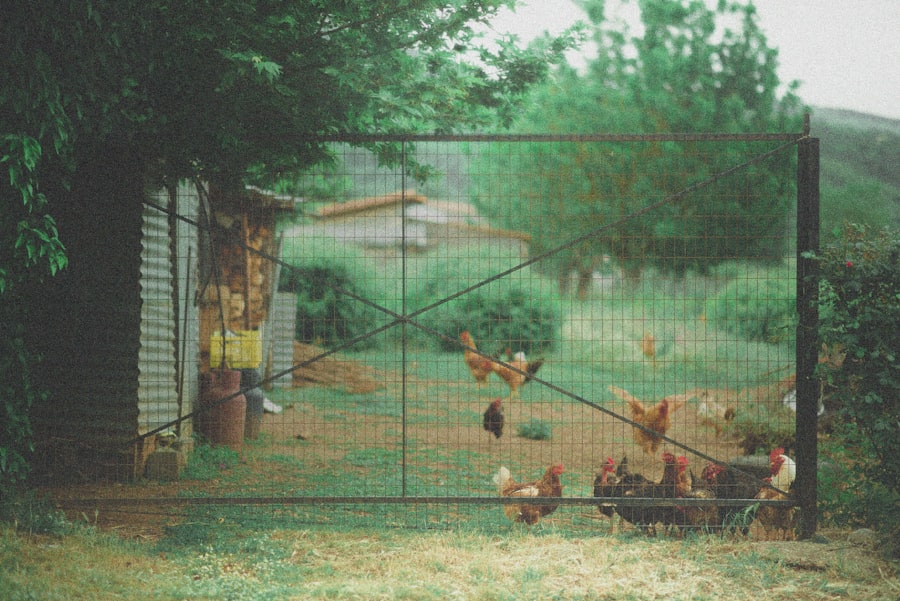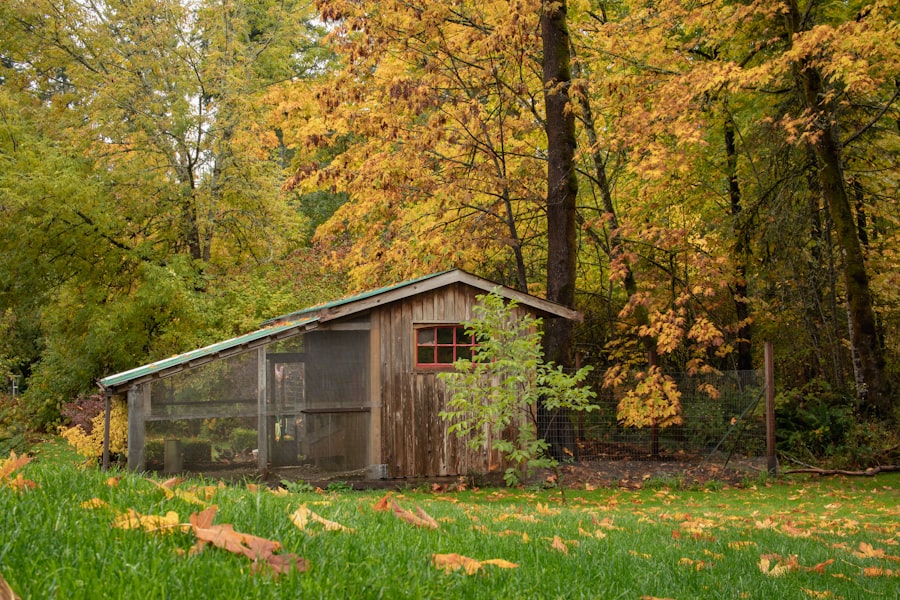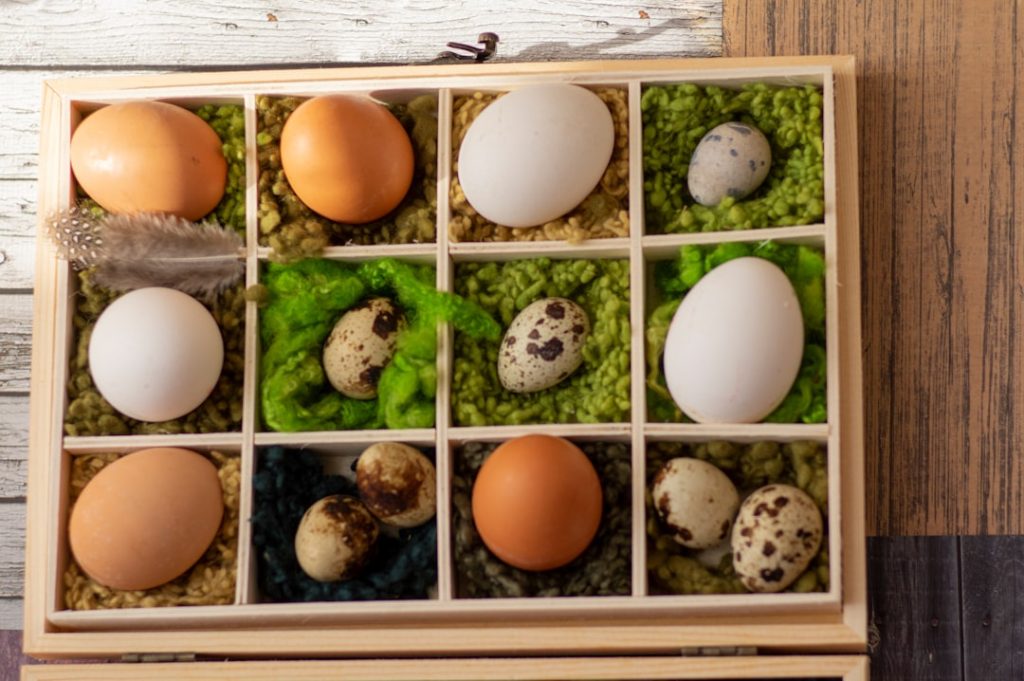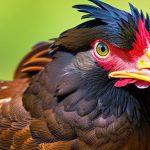Dachshunds possess a strong prey drive, an innate instinct that compels them to hunt and pursue small animals. This behavior is deeply rooted in their genetic makeup, stemming from their original purpose as badger hunters and burrowing animal trackers. Dachshund owners must recognize and understand this instinctual behavior to effectively manage and train their pets.
The prey drive can manifest in various ways, including chasing small animals, digging, and potentially aggressive behavior towards perceived prey. Dachshunds’ prey drive can be activated by multiple stimuli, such as the sight, sound, and scent of small animals. This heightened sensitivity may lead to the pursuit and potential harm of small pets, including chickens.
Owners should be cognizant of this tendency and implement preventive measures to ensure the safety of other animals. By comprehending the Dachshund’s prey drive, owners can better anticipate and control their pet’s behavior, fostering a safer and more harmonious environment for all animals involved.
Table of Contents
- 1 Training and Socializing Your Dachshund
- 2 Providing Proper Exercise and Mental Stimulation
- 3 Creating a Safe and Secure Chicken Coop
- 4 Supervising Interactions Between Dachshund and Chickens
- 5 Using Positive Reinforcement and Redirecting Behavior
- 6 Seeking Professional Help if Necessary
- 7 FAQs
- 7.1 What are some reasons why a dachshund might attack chickens?
- 7.2 How can I prevent my dachshund from attacking my chickens?
- 7.3 What are some training techniques to discourage a dachshund from attacking chickens?
- 7.4 Are there any specific products or tools that can help keep dachshunds from attacking chickens?
- 7.5 What should I do if my dachshund has already attacked my chickens?
Key Takeaways
- Dachshunds have a strong prey drive due to their hunting background
- Proper training and socialization are crucial for managing a Dachshund’s prey drive
- Dachshunds need regular exercise and mental stimulation to prevent boredom and potential hunting behavior
- A secure chicken coop is essential for keeping chickens safe from a Dachshund’s natural instincts
- Supervision is key when allowing Dachshunds to interact with chickens to prevent potential harm
- Positive reinforcement and redirection can help modify a Dachshund’s behavior around chickens
- Professional help should be sought if a Dachshund’s prey drive poses a serious risk to other animals
Early socialization is key in helping Dachshunds learn appropriate behavior around other animals. Exposing them to a variety of animals, people, and environments from a young age can help them develop good manners and reduce the likelihood of aggressive behavior towards other animals.
Positive Reinforcement Training
Positive reinforcement training techniques, such as rewarding good behavior with treats or praise, can also be effective in teaching Dachshunds to control their impulses and respond to commands. Consistent training and positive socialization experiences can help Dachshunds learn to coexist peacefully with chickens and other animals.
Providing Mental Stimulation and Physical Exercise
Additionally, providing plenty of mental stimulation and physical exercise can help reduce the likelihood of unwanted behaviors stemming from their prey drive. By investing time and effort into training and socializing your Dachshund, you can help them become well-behaved and respectful around chickens and other animals.
Providing Proper Exercise and Mental Stimulation

Dachshunds are energetic and intelligent dogs that require regular exercise and mental stimulation to keep them happy and healthy. Providing proper exercise not only helps them release pent-up energy, but it also reduces the likelihood of them exhibiting unwanted behaviors related to their prey drive. Regular walks, playtime, and interactive toys can help keep Dachshunds physically and mentally engaged, ultimately reducing their desire to chase or hunt small animals like chickens.
In addition to physical exercise, mental stimulation is equally important for Dachshunds. Engaging their minds through puzzle toys, training sessions, and interactive games can help satisfy their natural curiosity and intelligence. Mental stimulation can also help redirect their focus away from potential prey and towards more appropriate activities.
By providing a combination of physical exercise and mental stimulation, owners can help fulfill their Dachshund’s needs while also reducing the likelihood of unwanted behaviors around chickens.
Creating a Safe and Secure Chicken Coop
Creating a safe and secure chicken coop is essential in protecting your chickens from potential harm by your Dachshund. The coop should be sturdy and well-constructed to prevent any unauthorized entry by your dog. Ensure that the coop is elevated off the ground and has a secure locking mechanism to keep your chickens safe from any potential threats.
Additionally, consider reinforcing the coop with wire mesh or fencing to further deter any attempts by your Dachshund to access the chickens. It’s also important to provide adequate space for your chickens within the coop to allow them to move freely while also providing hiding spots if needed. By creating a safe and secure environment for your chickens, you can help minimize the risk of any potential interactions with your Dachshund that could lead to harm or stress for the birds.
Supervising Interactions Between Dachshund and Chickens
Supervising interactions between your Dachshund and chickens is crucial in ensuring the safety of both animals. Even with proper training and socialization, it’s important to closely monitor their interactions to prevent any potential incidents. When introducing your Dachshund to the chickens, keep them on a leash initially to maintain control over their behavior.
Observe their body language and reactions closely to gauge their level of interest in the chickens. It’s important to remain vigilant during these initial interactions and intervene if necessary to prevent any chasing or aggressive behavior towards the chickens. Over time, as your Dachshund becomes more accustomed to the presence of the chickens, you may gradually allow them more freedom under close supervision.
However, it’s important to always be present during their interactions to ensure the safety of both your Dachshund and the chickens.
Using Positive Reinforcement and Redirecting Behavior

Using positive reinforcement techniques is an effective way to manage your Dachshund’s behavior around chickens.
Rewarding Good Behavior
When your dog displays calm and respectful behavior around the chickens, be sure to reward them with praise or treats to reinforce this positive behavior. This helps them associate good behavior with positive outcomes, ultimately encouraging them to continue exhibiting appropriate conduct around the chickens.
Redirecting Unwanted Behavior
In instances where your Dachshund displays unwanted behavior towards the chickens, it’s important to redirect their focus onto a more appropriate activity. For example, if they begin showing signs of chasing or aggression towards the chickens, redirect their attention towards a toy or engage them in a training exercise to shift their focus away from the birds.
Consistency is Key
Consistent use of positive reinforcement and redirection techniques can help shape your Dachshund’s behavior around chickens in a positive way.
Seeking Professional Help if Necessary
In some cases, managing a Dachshund’s prey drive around chickens may require professional assistance. If you’re struggling to address your dog’s behavior despite consistent training efforts, seeking help from a professional dog trainer or behaviorist may be beneficial. These experts can provide personalized guidance and support in addressing your Dachshund’s prey drive and developing strategies for managing their behavior around chickens.
Professional trainers can assess your dog’s behavior and provide tailored training plans to address any issues related to their prey drive. They can also offer valuable insights and techniques for managing interactions between your Dachshund and chickens in a safe and effective manner. By seeking professional help when needed, you can gain valuable support in addressing your Dachshund’s prey drive and promoting harmonious coexistence with your chickens.
If you’re looking for ways to keep your dachshund from attacking your chickens, you may also be interested in learning about the best chicken coop designs to ensure the safety of your flock. Check out this article on farmhouse chicken coop to find out how to create a secure and comfortable environment for your chickens.
FAQs
What are some reasons why a dachshund might attack chickens?
Some dachshunds have a strong prey drive, which can lead them to see chickens as potential prey. Additionally, dachshunds are known for their hunting instincts, which can make them prone to chasing and attacking smaller animals.
How can I prevent my dachshund from attacking my chickens?
One way to prevent your dachshund from attacking your chickens is to provide proper training and socialization from a young age. Additionally, keeping your dachshund on a leash or in a fenced area when around the chickens can help prevent any potential attacks.
What are some training techniques to discourage a dachshund from attacking chickens?
Training techniques such as positive reinforcement, desensitization, and redirection can be effective in discouraging a dachshund from attacking chickens. It’s important to work with a professional dog trainer to develop a training plan that is tailored to your dachshund’s specific behavior and needs.
Are there any specific products or tools that can help keep dachshunds from attacking chickens?
There are products such as chicken coops with secure fencing, chicken wire, and electronic pet containment systems that can help keep dachshunds away from chickens. Additionally, using deterrent sprays or noise-making devices can help discourage dachshunds from approaching the chickens.
What should I do if my dachshund has already attacked my chickens?
If your dachshund has already attacked your chickens, it’s important to seek guidance from a professional dog trainer or behaviorist. They can help assess the situation and provide guidance on how to prevent future attacks. Additionally, it’s important to ensure the safety and well-being of your chickens by providing proper housing and protection.

Meet Walter, the feathered-friend fanatic of Florida! Nestled in the sunshine state, Walter struts through life with his feathered companions, clucking his way to happiness. With a coop that’s fancier than a five-star hotel, he’s the Don Juan of the chicken world. When he’s not teaching his hens to do the cha-cha, you’ll find him in a heated debate with his prized rooster, Sir Clucks-a-Lot. Walter’s poultry passion is no yolk; he’s the sunny-side-up guy you never knew you needed in your flock of friends!
Meet Walter, the feathered-friend fanatic of Florida! Nestled in the sunshine state, Walter struts through life with his feathered companions, clucking his way to happiness. With a coop that’s fancier than a five-star hotel, he’s the Don Juan of the chicken world. When he’s not teaching his hens to do the cha-cha, you’ll find him in a heated debate with his prized rooster, Sir Clucks-a-Lot. Walter’s poultry passion is no yolk; he’s the sunny-side-up guy you never knew you needed in your flock of friends!







